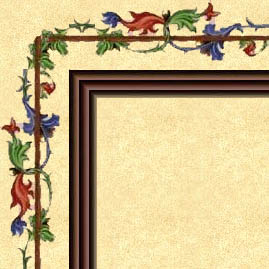


Time permitting, the final round will be another, shorter grand melee, this time over the barrier. This round gives special opportunities for acts of courage, such as the fighter who swears not to remove his hand from the barrier.
According to René's book there should be three prizes given:
"...for him who strikes the best blow with a lance that day."
"...for him who breaks the most lances"
"...for him who stays the longest in the lists without losing his helm."
We have summarised this with the one who most impresses the judges with their courage, prowess and chivalry. In addition, the judges may present prizes for other noteworthy actions, such as the best challenge.
"First, the trumpeters of the judges should go before, playing, then all the heralds and pursuivants like a fleet of ships; and after them the king of arms alone, and after him the knight of honor carrying the shaft of a lance in his hand, about five feet long or thereabouts. After the knight of honor should come the lady who carries the prize covered with the veil that was carried before the knight of honor, and on her right and left should come the judges, knights and squires, who should support her under the arms; and to the right and the left of the knights should be the two damsels on the arms of the two judges who are squires. The two damsels should hold the two ends of the veil, and in this way they shoud go three times around the hall, and then stop before the one to whom they wish to give the prize."
There will be a prize presented by the Company of the Swan for the tourneyer whose equipment (and entourage, if appropriate) most contribute to the fifteenth century atmosphere of the tourney.
All gentles watching the tourney, but especially the Ladies, are invited to give tokens and speak gentle words to tourneyers who have impressed them. This can take place at any time outside the fighting areas. 1)